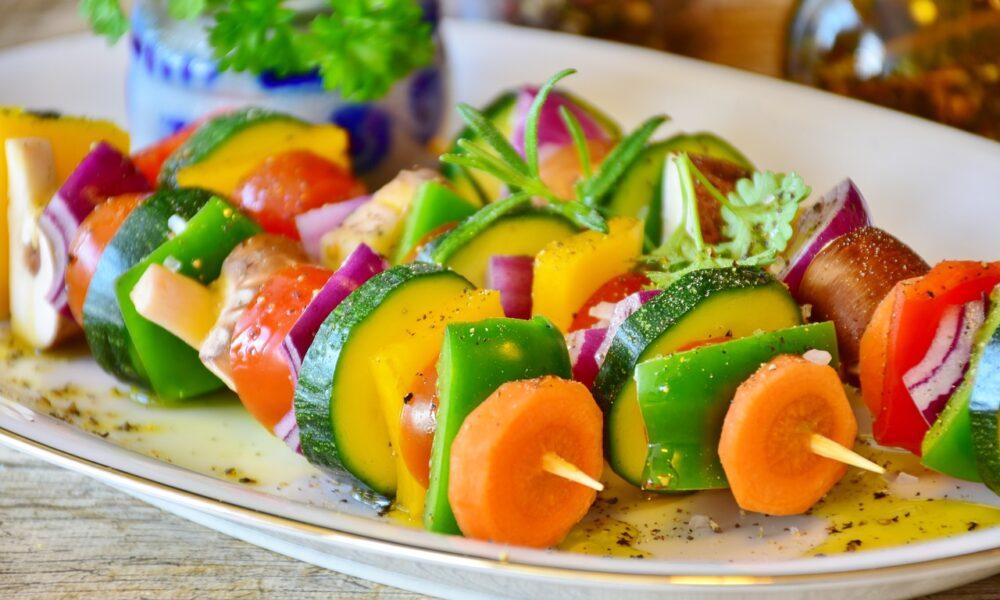

If you are looking to build your muscle and strength while enjoying a vegan diet, don’t feel defeated. This article lists vegan foods you should include and avoid in your plant-based diet and explains tips that can help you fuel your fitness journey as a vegan bodybuilder.
What is a Vegan Diet for Bodybuilders?
A vegan diet for bodybuilders is a plant-based eating approach tailored to meet the nutritional needs of individuals engaged in intense strength training and muscle-building workouts.
It centers on the principles of a vegan lifestyle, which involves abstaining from all animal products, including meat, dairy, and eggs.
Tips to Help You Implement A Vegan| Plant-based Diet
Nutrition is critical in muscle and strength development and overall fitness, just as resistance training. For optimum muscle growth, novice and intermediate bodybuilders require a calorie surplus of 10 to 20% and a high protein intake of 1.6–2.2 grams per kg (0.7–1.0 grams per pound) of body weight per day.
Unfortunately, plant-based diets have a lower protein quality than the traditional bodybuilding diet, which contains animal products with high protein and calories. This poses a challenge to bodybuilders as it affects weight gain.
To ensure you get the necessary nutrients from a plant-based diet to support your muscle growth and overall health, you need careful planning. Here are eight critical tips to help you get started:
1. Get Sufficient Macros
To successfully implement a vegan bodybuilding diet, determine your daily macronutrient requirements, which include protein, carbohydrates, and fats. This will help you to support your activity level and muscle-building goals.
Protein is the most critical macronutrient for your body as it is the building block for muscle growth. As a novice or intermediate bodybuilder, aim for a higher protein intake of 0.7-1g per pound of body weight daily to enhance muscle building.
However, since most vegan protein sources are lower quality and do not contain all the essential amino acids your body requires, stick close to the higher amounts of protein of 1 gram per 1 pound of your body weight.
Fat and carbohydrates, although not needed in high amounts, are still essential. Fats help regulate hormones, boost brain function, and assist in joint health, which are critical in bodybuilding goals. Consume fat in the range of 20% and 40% of total calorie consumption.
Consider filling up on plant-based protein sources such as beans, lentils, tofu, tempeh, seitan, nuts, and seeds to meet your required daily protein intake and promote muscle gain.
Vegan protein shakes and supplements such as vegan multivitamins and protein powders also provide a concentrated amount of protein to help you meet your protein requirement.
Carbs provide the energy necessary for intense workouts. Aim for 45-50% of your daily caloric intake from carbohydrates. Whole grains, fruits, and vegetables are excellent sources.
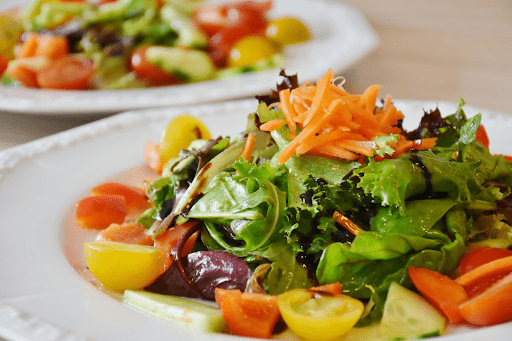
2. Eat Plenty of Fruits and Vegetables
Eating plenty of fruits and vegetables ensures your body gets the nutrients deficient in other vegan bodybuilding diets.
Every bodybuilder needs a significant amount of vitamins and minerals for effective training and muscle development. Fruits and vegetables are rich in vitamins and minerals like vitamin C, vitamin A, and potassium, which are essential for immune function, muscle contraction, and electrolyte balance.
Fruits and vegetables are excellent sources of dietary fiber. Fiber aids digestion and promotes feelings of fullness, which helps control appetite and manage calorie intake, maintaining a healthy body weight.
They also contain antioxidants, such as polyphenols and flavonoids, which help combat oxidative stress and inflammation caused by intense workouts. Reducing oxidative stress is crucial for muscle recovery, reduced soreness, and overall health.
3. Limit Processed Food
Many processed vegan foods may not be the healthiest. Processed foods, such as vegan snacks, fast food, and sugary treats, are often high in refined sugars, unhealthy fats, and artificial additives. Consuming these foods can lead to weight gain and health problems.
For a well-balanced plant-based diet, focus on whole foods like fruits, vegetables, legumes, whole grains, and nuts. These foods provide essential nutrients and fiber that promote good health and weight management.
4. Take Plenty of Fluids
While vegan bodybuilding diets often include fruits, grains, vegetables, and legumes, these foods contain high fiber. High fiber intake can cause bloating, abdominal pain, and severe flatulence.
To counteract these complications, drink plenty of water. Start by drinking at least 1ml water or fluid per calorie.
Taking plenty of fluids also keeps your body hydrated. Proper hydration helps maintain energy levels during workouts, reducing the risk of cramps and promoting muscle recovery in bodybuilding. It also aids digestion and regulates body temperature when working out.
Consider taking vegan fluids such as herbal teas, coconut water, and water.
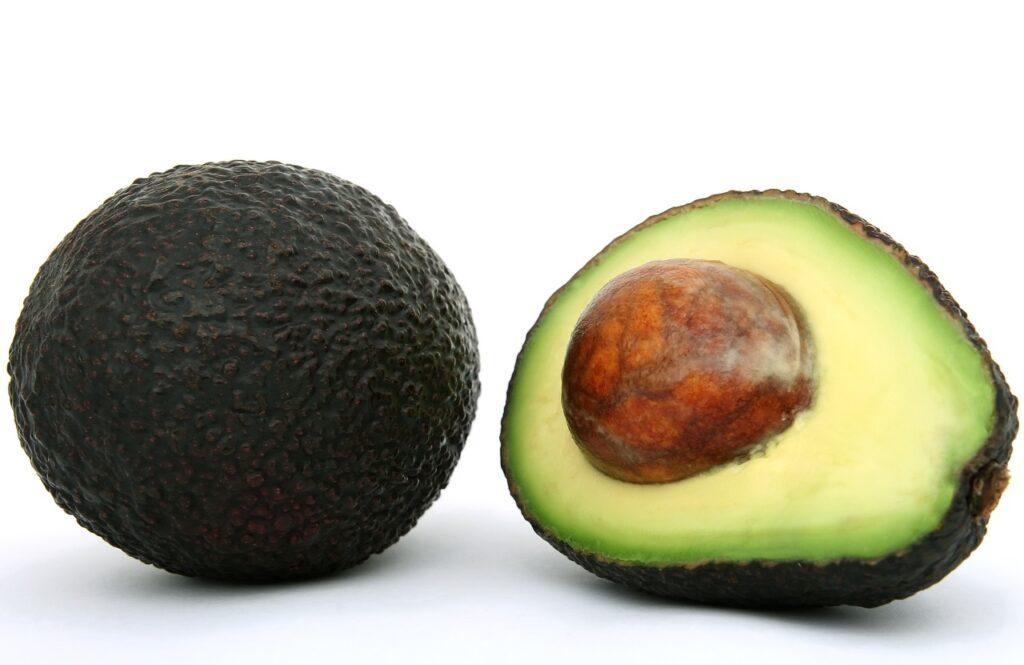
5. Get Enough Healthy Fat
Like a traditional diet, a vegan bodybuilding diet should have enough healthy fats. Consuming enough healthy fats helps in nutrient absorption, hormone regulation, and energy. Fats provide more calories (twice the number of carbs and protein), which is crucial for muscle building and recovery.
Fat intake recommendation is 1 gram per kg of body weight daily or 0.5 pounds per pound for off-season bodybuilders.
In a plant-based diet, sources of healthy fats include avocados, nuts, seeds, and olive oils. Incorporating them ensures you get the necessary energy to support muscle development.
6. Keep Workouts Short and Intense
Vegans rely mainly on the protein from plant-based foods to provide energy for their workout. These proteins may not be enough to get you through long workout sessions, forcing your body to consume the stored protein to meet the elevated energy demands.
Since the protein is the building block of muscle development, when it is fully consumed, muscle mass loss occurs.
Short but intense workouts are effective for muscle hypertrophy, strength, and overall fitness. Performing them instead of long workout sessions will prevent muscle mass loss and help stimulate muscle growth while reducing the risk of overtraining and injury.
7. Eat Frequently
Eat frequently throughout the day since you won’t be getting much protein from the vegan diet as it contains few proteins which are of low quality when compared to traditional meals.
Eating frequently maintains a steady flow of nutrients and energy requirements throughout the day, preventing energy dips and muscle catabolism. It also supports metabolic efficiency and ensures a constant supply of amino acids for muscle repair and growth.
8. Consume a Variety of Plant-Based Foods
Many vegan foods do not contain all of the essential amino acids. Gravitating on the same food over and over again can promote nutrient deficiency.
Take time to plan and incorporate a wide range of plant-based foods to receive all the essential nutrients your body needs.
Different fruits, vegetables, legumes, grains, nuts, and seeds offer unique vitamins, minerals, and antioxidants. This variety not only enhances your overall health but also makes your meals more enjoyable and supports your fitness goals.
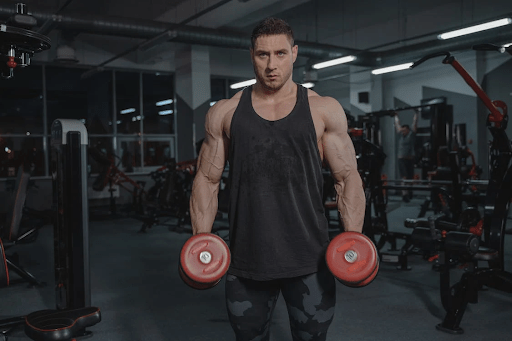
Benefits of Vegan|Plant-Based Diet
A vegan bodybuilding diet can offer several potential benefits for individuals looking to build muscle, improve athletic performance, and maintain overall health. Here are some of the advantages of following a vegan diet for bodybuilding:
1. Reduced Risk of Chronic Diseases
A well-planned vegan diet tends to be low in saturated fat and cholesterol and higher in fiber and other essential compound.
Reduced cholesterol and saturated fat intake can help reduce the risk of heart disease. High fiber consumption has also been linked with reduced heart disease and stroke incidences.
2. Improved Digestion
Plant-based diets are often high in fiber, promoting healthy digestion and regular bowel movements. Fiber also helps with fullness and satiety, which is vital for bodybuilders aiming to control their calorie intake to maintain a lean physique and promote weight management.
3. Reduced Inflammation
Plant-based diets rich in fruits, vegetables, whole grains, and legumes are known for their anti-inflammatory properties. By reducing inflammation, vegan bodybuilders may experience improved muscle recovery and reduced muscle soreness, allowing more frequent and intense training sessions.
3. Maintained Health Weight
Plant-based foods, such as fruits and vegetables, tend to be lower in calorie density than animal-based products. You can consume more significant portions of them while keeping your calorie intake in check, which can benefit weight management.
The high dietary fiber in Vegan diets promotes satiety, reducing overeating and snacking between meals, which helps with weight loss.
4. Reduced Cancer Risks
While a vegan bodybuilding diet alone doesn’t guarantee protection against cancer, it is associated with a reduced risk of certain types of cancer due to its high Antioxidant Content, which helps protect cells from damage caused by free radicals. This protection can reduce the risk of cancer development.
Foods to Eat as a Vegan Bodybuilder
As a vegan bodybuilder, it’s essential to focus on nutrient-dense foods that provide the necessary macronutrients (protein, carbohydrates, and fats) and micronutrients (vitamins and minerals) to support muscle growth, recovery, and overall health. Here’s a list of foods to include in your vegan bodybuilding diet:
1. Plant-Based Protein Sources
- Legumes: Lentils, chickpeas, black beans, and soybeans (tofu, tempeh, edamame).
- Pea Protein: Pea protein powder can be added to smoothies or used in cooking to increase protein intake.
- Nuts and Seeds: Almonds, peanuts, chia seeds, and hemp seeds are good protein sources and healthy fats.
- Textured Vegetable Protein (TVP): TVP is made from soy flour and is a versatile meat substitute rich in protein.
2. Whole Grains
- Quinoa
- Brown Rice
- Oats
- Whole Wheat Pasta and Bread
3. Plant-Based Dairy Alternatives
- Soy Milk: A good source of protein and fortified with essential nutrients like calcium and vitamin D.
- Almond Milk, Oat Milk, and Coconut Milk:
- Vegan Yogurt and Cheese
4. Fruits and Vegetables
- Berries such as strawberries, blueberries, raspberries, and blackberries are rich in antioxidants, which can reduce inflammation and support recovery after intense workouts.
- Citrus fruits such as oranges, grapefruits, and lemons are high in vitamin C, which supports the immune system and aids in absorbing plant-based iron.
- Leafy greens include Spinach, kale, broccoli, Swiss chard, and collard greens.
5. Healthy Fats
- Avocado oil
- Nuts and Seeds oil
- Olive Oil, Flaxseed Oil, and Coconut Oil
6. Plant-Based Snacks and Protein Powder
- Hummus: Made from chickpeas, it’s a great dip and source of protein.
- Nut Butter: Peanut, almond, and cashew butter are rich in healthy fats and protein.
- Dried Fruit: As a high-energy snack.
- Vegan protein powders, such as peas, rice, or hemp protein, can supplement your protein intake.
7. Hydration and Fortified Foods
Look for foods fortified with essential nutrients like B12, iron, and calcium, as these nutrients can be challenging to obtain from plant-based sources.
Drink plenty of water, herbal teas, and electrolyte-rich beverages to stay hydrated, especially during workouts.
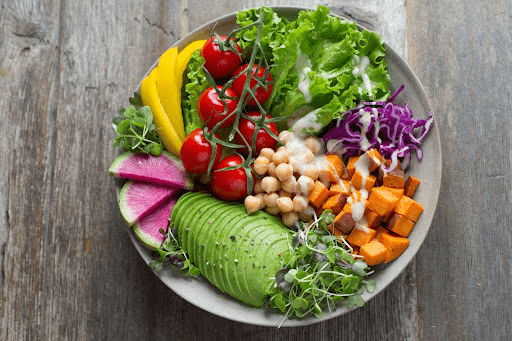
Food To Avoid:
While a plant-based diet offers numerous benefits, there are specific foods or categories to avoid or consume in moderation to optimize your bodybuilding goals. They include the following:
Processed Vegan Junk Foods: Highly processed vegan junk foods, such as vegan sausages, vegan ice cream, sugary snacks, and vegan fast food. They are high in Unhealthy fats, sugars, and artificial additives and lack essential nutrients. Overconsumption of these foods can hinder your fitness progress.
Refined Carbohydrates: white bread, white rice, and sugary cereals.
Alcohol: Excessive alcohol consumption can interfere with muscle recovery and overall fitness. Drink in moderation
Unhealthy Fats: Limit your intake of unhealthy fats, such as trans fats and excessive saturated fats. They can be found in some vegan fried foods and processed snacks.
Conclusion
A successful vegan bodybuilding diet focuses on nutrient-dense, whole foods to provide the necessary macros for muscle growth and overall health.
By avoiding processed foods, staying hydrated, including healthy fats, and following a short, intense workout regimen, you can achieve your fitness goals while adhering to a plant-based diet.
Try this plant-based lifestyle and achieve your fitness goals.






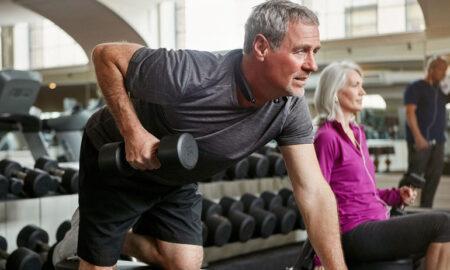
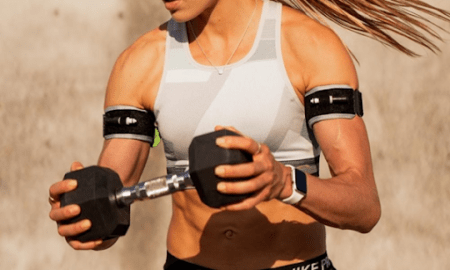









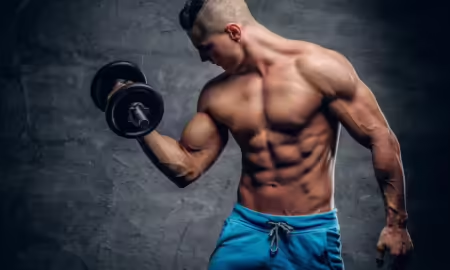




You must be logged in to post a comment Login